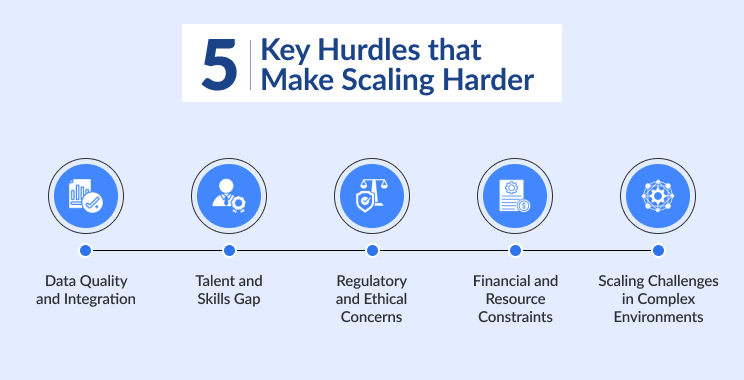In the era of digital healthcare, artificial intelligence (AI) is becoming an important tool in improving patient care, especially in oncology practices. As AI technology evolves, clinician feedback is essential to maximize its effectiveness. Feedback loops allow clinicians to refine AI systems based on real-world experiences, enhancing the accuracy of AI-generated notes and ensuring they align with the unique structures and workflows of various medical practices.
Understanding Feedback Loops
Feedback loops enable clinicians to assess and provide input on AI performance after using it in practice. This process is critical in oncology, where the nuances of patient care require precision in documentation and decision-making. Roupen Odabashian, a physician at Karmanos Cancer Institute, supports the use of AI scribes to lessen the burden of clinical documentation. By capturing patient interactions and converting them into structured medical notes, the technology allows oncologists to concentrate more on patient-oriented tasks instead of administrative duties.
The feedback loop is a core function that enables clinicians to edit generated notes and adjust them based on their experiences. This mechanism continuously refines AI systems, ensuring they meet the specific needs of oncologists and improve the quality of documentation. Clear instructions and organized templates are vital in this process; they help prevent data errors that could impact patient outcomes.
The Role of Customization in AI
Every oncologist has unique preferences regarding note structure and documentation style. The importance of customization in AI tools is significant. An AI scribe with personalization features allows physicians to adapt templates that work with their workflow. Such tailored systems enhance usability and improve the accuracy of clinical notes. Feedback from frontline clinicians supports this customization, enabling AI systems to evolve with the dynamics of clinical practice.
When AI scribes have access to patient context—such as previous treatments or significant medical history—they can refine the accuracy of notes significantly. This context is crucial in oncology, where treatment plans hinge on detailed personal and medical information. The collaboration between a clinician’s expertise and an AI’s ability to collect and process data can lead to comprehensive patient care plans.
Real-World Applications and Challenges
At the HIMSS25 conference, healthcare leaders discussed the importance of trust in deploying AI in clinical settings. Dr. Peter Clardy talked about the broader adoption of AI within healthcare, suggesting that organizations can adopt it even with limited technical expertise. However, the conversation also highlighted potential risks associated with blind AI implementation. Jackie Rice from Frederick Health emphasized the need for phased deployments, where AI solutions are first tested in pilot programs before wider application.
By involving clinicians in the feedback process, organizations enhance the trustworthiness of AI tools and ensure that technological advancements align with clinical realities. This collaborative atmosphere encourages transparency and allows healthcare professionals to communicate their experiences openly. Rachel Wilkes of MEDITECH explained the importance of feedback in improving AI systems, treating AI as an assistant rather than a decision-maker. This approach values clinician input, confirming that technology should support human capabilities rather than replace them.
AI and Workflow Automation in Oncology
Incorporating AI into oncology practices leads to workflow automation benefits. Dr. Odabashian’s experiences demonstrate how AI scribes reduce the administrative workload on oncologists, allowing them to spend more time on patient care. The integration of AI can streamline workflows such as appointment scheduling, real-time documentation, and treatment plan assessments.
For example, organizations can use AI-driven platforms to automate appointment reminders and follow-up calls. This automation improves patient engagement and reduces no-show rates, enhancing practice efficiency. AI messaging systems can capture and transcribe patient information directly, minimizing data entry time and lowering the risk of errors.
Additionally, AI tools can assist in decision support, providing oncologists with updated information on treatment protocols and research. Implementing such technology enhances practice efficiency while ensuring quality patient care. Clinicians can stay informed of the latest evidence-based treatments without spending excessive time gathering information.
Enhancing Clinical Documentation with AI
The need for accurate clinical documentation in oncology is crucial. As healthcare providers face increasing documentation demands, AI scribes are an essential solution. By simplifying the creation of structured notes from clinician-patient interactions, these tools alleviate the administrative burden associated with documentation, leading to higher productivity.
Successful implementation of AI scribes depends on continuous clinician feedback. The iterative process refines the system’s capabilities and ensures alignment with clinical workflows. Norman O. Shapiro, a leader in healthcare technology, argues that repetitive discussions about system performance can lead to improvements in AI accuracy, ultimately benefiting patient care.
Moreover, the feedback loop significantly impacts how AI systems develop in the oncology field. Clinicians can use feedback to identify areas for improvement, such as essential elements for effective documentation. Consequently, AI can learn from this input to create better algorithms and processes, tailoring the experience for healthcare providers.
Ethics and Trust in AI Deployment
Trust is fundamental in adopting AI in healthcare. As mentioned at HIMSS25, responsible AI deployment is crucial for clinician acceptance and patient safety. Ethical concerns arise when organizations implement AI tools without sufficient safeguards or clinician involvement. Feedback mechanisms are vital in addressing these concerns, allowing oncologists to share insights about AI functionalities.
The Health AI Partnership, involving several healthcare organizations, emphasizes the need for community-driven feedback in AI development. This coalition aims to create best practices for using augmented intelligence across various healthcare systems. By establishing platforms for clinicians to provide input and report challenges, the partnership seeks to improve transparency and trust in AI technologies.
Furthermore, the initiative recognizes the need for regular updates and case studies to refine guidance on AI implementation. Engaging stakeholders, especially frontline clinicians, encourages active participation in the development process, ensuring AI tools address real clinical challenges.
Incorporating feedback loops enables ongoing dialogue between healthcare providers and technology stakeholders. This cooperation establishes a culture where clinicians feel confident in the tools they utilize.
Future Directions for AI in Oncology Practices
The future of AI in oncology practices appears promising, but it depends on how organizations approach its implementation. There is a growing need to establish structured feedback mechanisms for continuous improvement. Without such a framework, AI systems may become obsolete or fail to meet the changing needs of healthcare providers.
To support a successful AI integration strategy, administrators should focus on the following key areas:
- Building Comprehensive Feedback Structures: Establishing channels for clinicians to report insights and challenges will help improve AI applications based on real-world experiences. Regular check-ins and feedback sessions are vital for maintaining collaborative relationships.
- Implementing Phased Deployment: Testing AI tools through pilot programs can reduce risks associated with immediate full-scale implementation. Organizations should prioritize clinician feedback before scaling to provide a flexible environment for the technology.
- Enhancing Training and Education: Offering training to users on interacting effectively with AI tools will help better understanding and acceptance of their capabilities. Clinicians need to feel comfortable navigating these systems to maximize their benefits in patient care.
- Prioritizing Ethical Considerations: Responsible AI deployment should be a shared goal among all stakeholders. Institutions must evaluate the ethical implications of AI tools, ensuring they enhance patient care.
By concentrating on these areas, oncology practices can show a commitment to integrating AI in ways that support clinician workflows and improve patient experiences. The future will likely involve AI systems continuously evolving, bridging the gap between clinician expectations and technological capabilities through effective feedback loops.
With dedication and collaboration, the oncology sector can optimize its use of AI tools, leading to better patient outcomes and a higher quality of care within the United States.
The post Feedback Loops in Oncology Practices: Refining AI with Clinician Input first appeared on Simbo AI – Blogs.






